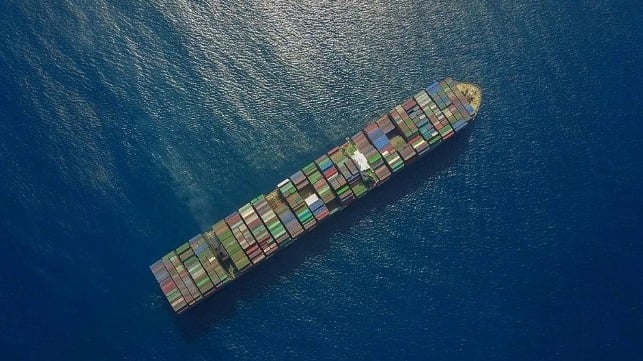FMC Increases Reporting for Carriers as Shippers Call for More Action

The Federal Maritime Commission is continuing to enhance its oversight efforts designed to scrutinize the business policies of the leading ocean carriers. The FMC’s efforts to increase the mandated reporting requirements for the three ocean carrier alliances come after President Biden criticized the alliances during his State of the Union speech and as the import-export community continues to urge still stricter enforcement against the carriers and fees.
After a year-long examination by the FMC’s Bureau of Trade Analysis (BTA) to determine the data needed to properly analyze carrier behavior and marketplace trends, the commission has enacted a series of new reporting requirements. The three global ocean carrier alliances (2M, OCEAN, and The Alliance) and each of their member companies will now be required to provide enhanced pricing and capacity information. Under the new requirements, carriers participating in an alliance will need to submit pricing information about the cargo they move on the major trade lanes, and both carriers and alliances will be mandated to submit comprehensive information related to capacity management.
According to the FMC, with uniform data, it will have a greater capacity to assess ocean carrier behavior and marketplace competitiveness. “The newly mandated information will provide the commission’s Bureau of Trade Analysis with insight into pricing of individual trade lanes and by container and service type. It will also provide more immediate information regarding capacity management decisions of ocean carriers and alliances,” the FMC said in announcing the new requirements.
The three ocean carrier alliances are already subject to the most frequent and stringent monitoring requirements of any type of agreement on file at the FMC. Currently, the commission collects information including detailed operational data, minutes from meetings among agreement principals, and regularly scheduled meetings with agreement parties where commission staff address issues of concern.
Citing the rapid growth in the three alliances, President Biden in February 2022 instructed the Justice Department working with the FMC to increase scrutiny of the carriers and enforcement of existing antitrust laws. The President said that from 1996 to 2011 the alliances operated about 30 percent of global container shipping compared to today where they control 80 percent of global containership capacity and 95 percent of the east-west trade lines. According to administration officials, the alliances’ dominance on the routes was resulting in reduced competition, skyrocketing profits, and the collapse in the export market.

that matters most
Get the latest maritime news delivered to your inbox daily.
Last week, the FMC’s newly launched National Shipper Advisory Committee, consisting of a who’s who of exporters and importers, recommended that the FMC further expand its oversight to all segments of the supply chain involved with a bill of lading. The Advisory Committee is focusing on fees passed on to and imposed on shippers calling on the FMC as part of its oversight of the carriers to increase restrictions specifically on D&D charges. They recommended that the FMC restrict carriers’ ability to pass along terminal dwell fees as well as take responsibility for the oversight of demurrage charges at ports and from the railroads. The advisory group asserted that shippers are not the cause of port congestion and should not be paying the fees being passed along by the carriers due to delays.
The FMC acknowledges that one of its key responsibilities, through BTA, is to continuously monitor compliance with agreement authorities and to determine if agreements have an anticompetitive impact on the marketplace. The new requirements are the latest step in the efforts to increase the oversight of the carriers and comes in advance of the potentially increased responsibilities for the FMC included in the pending Ocean Shipping Reform Act currently working its way through the U.S. Congress.
